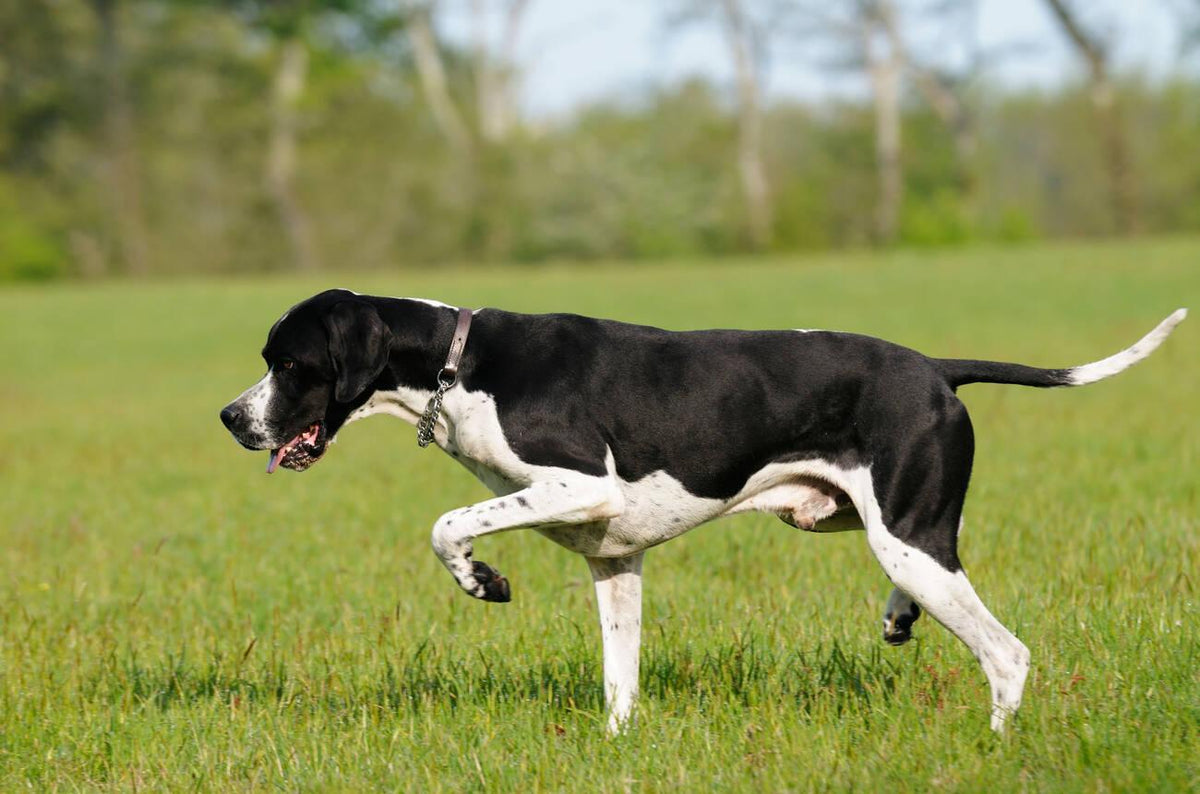
Breed History
Today, they are still widely used in the field, especially in North America and Europe, where they remain a favourite among upland game bird hunters. The English Pointer has also become a beloved companion, thanks to its affectionate nature and elegant build.
Food for your English Pointer
-
English Pointers are athletic, medium-to-large dogs bred for endurance. Lean meats like lamb, chicken, or buff provide high-quality protein to support lean muscle mass, sustained energy, and recovery after intense activity or hunting-like play.
-
Because Pointers are active and may strain joints with their bursts of speed, supplements with glucosamine, MSM, and omega-3s help reduce inflammation, support joint flexibility, and maintain healthy connective tissues over time.
-
A warm chicken or fish bone broth added to meals improves hydration, supports digestion, and helps maintain healthy skin and coat, especially useful for Pointers with sensitive stomachs or during hotter months.
-
Use single-ingredient, protein-rich treats like dehydrated liver or fish to reward and reinforce training. These low-fat options help maintain focus without excess calories or additives.
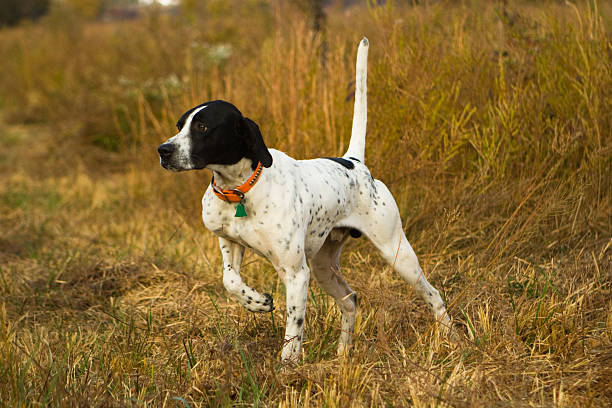
Training your English Pointer
-
English Pointers are high-endurance sporting dogs that need at least 1.5–2 hours of daily exercise. Regular activity maintains physical fitness, balances energy levels, and curbs frustration that can lead to hyperactivity or stubbornness.
-
They excel at running, long walks, fetch, and field-style games. Varying activities and environments, like open fields, trails, or beach runs, keep their sharp senses and instincts engaged.
-
Mental stimulation is equally crucial. Incorporate obedience training, nose work, or interactive toys to keep their alert minds busy. Without it, they may become easily bored and distracted.
-
When under-stimulated, Pointers may show unwanted behaviors like pacing, barking, or escaping. A consistent outlet for their drive is necessary to maintain a calm home environment.
-
While they love high-speed movement, they also include low-impact sessions like leash walks or swimming. This supports long-term joint health, especially in senior Pointers or those prone to overexertion.
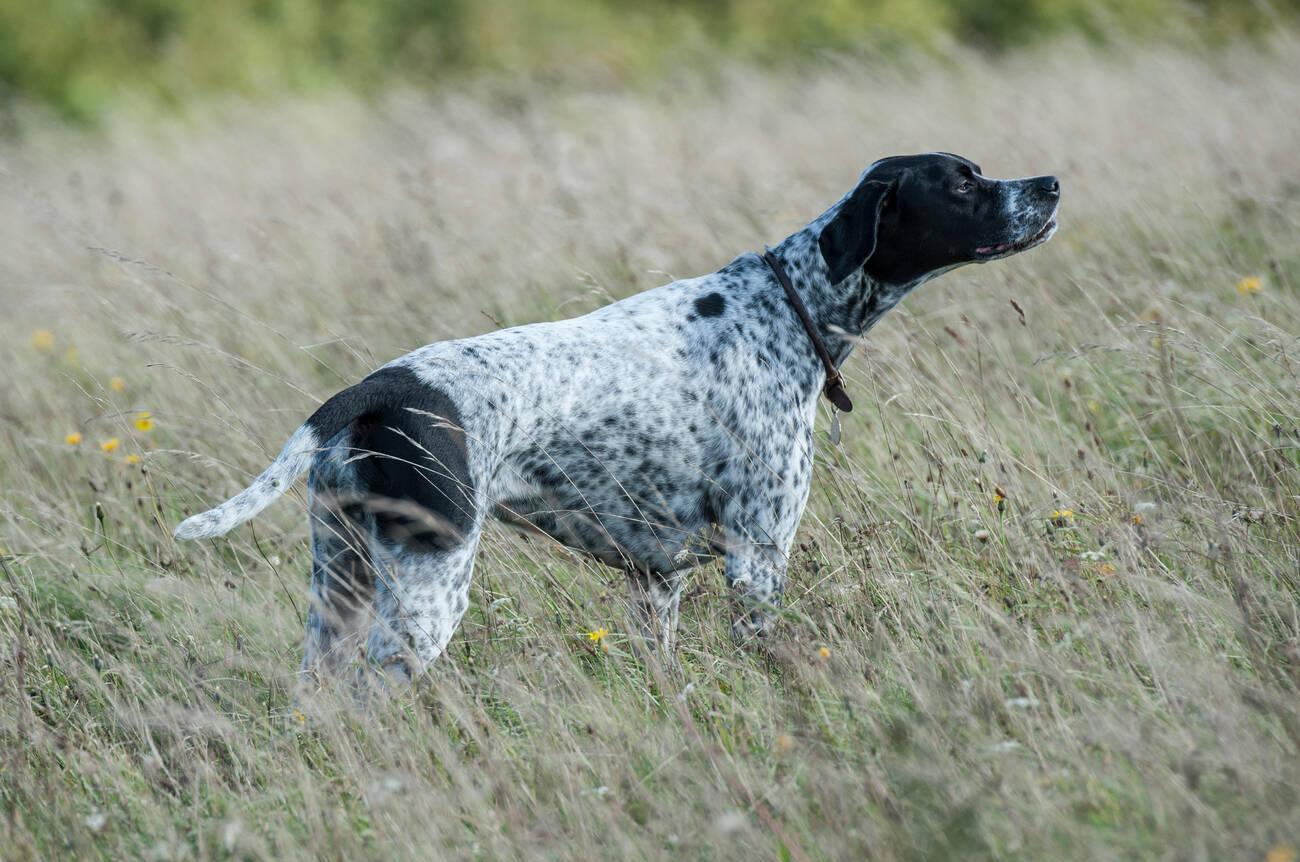
Recommended Treats
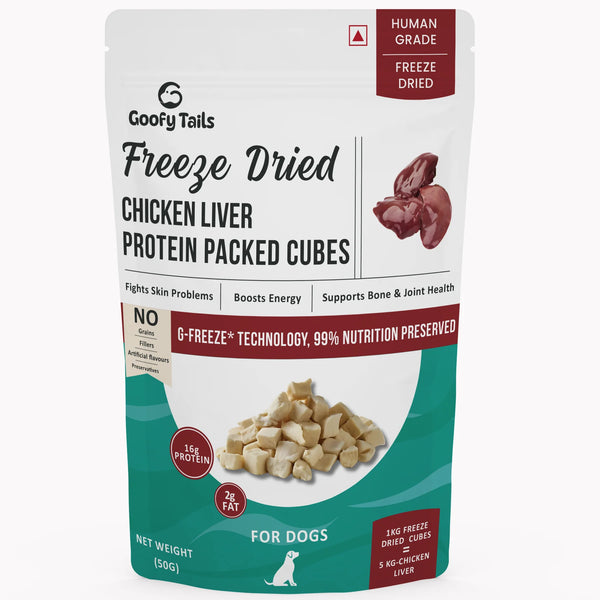
Freeze-Dried Chicken Liver
Packed with real, raw nutrition, these dog treats offer the convenience of freeze-dried goodness. These treats are gluten-free and grain-free, catering to dogs with dietary sensitivities or specific needs. Designed to promote digestion and overall well-being, they are perfect for dogs with sensitive stomachs.
Exercising your English Pointer
-
The English Pointer is highly energetic and intelligent, originally bred for hunting and pointing game. While eager to please, they can be easily distracted without firm but gentle training, so early consistency is key to shaping good behavior.
-
Pointers respond well to clear structure and routine. Use consistent commands, a calm tone, and timely corrections to help them stay focused, especially when outdoors or around distractions.
-
Positive reinforcement is essential. Use natural, high-reward treats for following commands, along with verbal praise. This motivates them to listen and strengthens the bond with their handler.
-
Early socialization is crucial. Introduce them to a variety of people, dogs, and settings to reduce anxiety and prevent overly reactive behavior in new situations.
-
Mental stimulation matters. Combine basic obedience with retrieval games, agility drills, or scent work to keep them mentally sharp and physically satisfied.
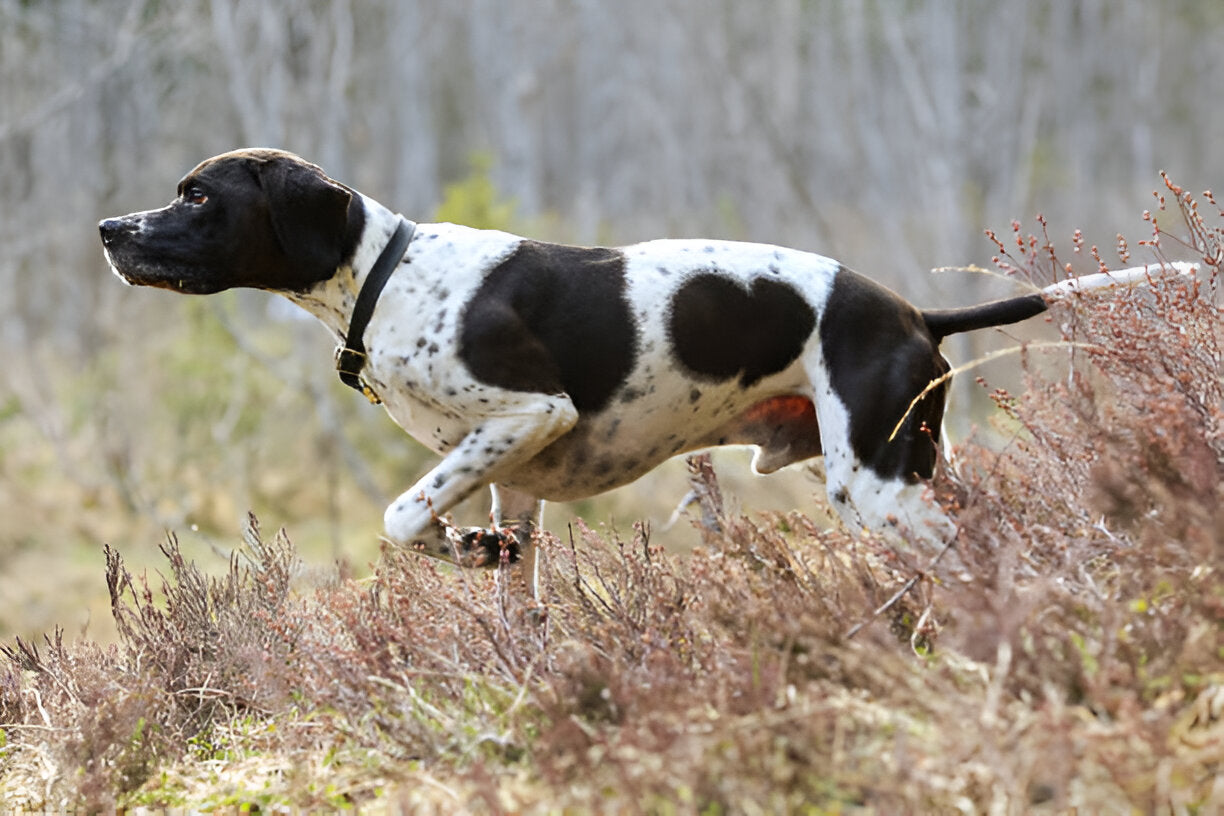
Recommended Supplement
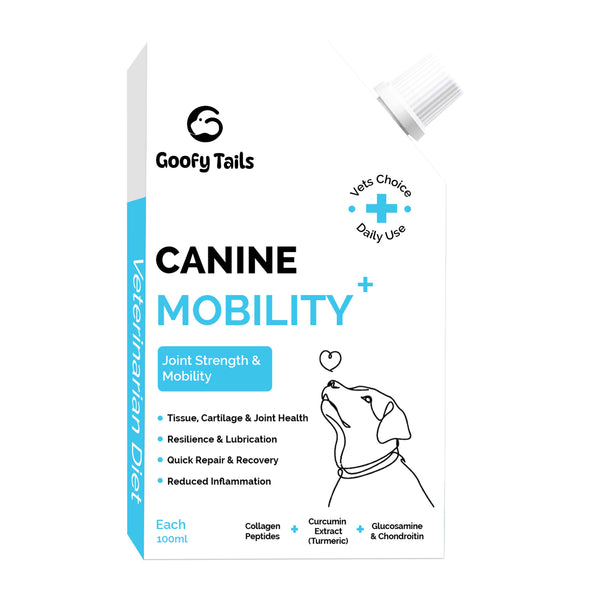
Canine Mobility+
A fortified broth specially formulated for dogs, enriched with collagen, glucosamine, curcuminoid, and chondroitin to enhance flexibility, ease stiffness, and promote long-term mobility. Highly palatable and ideal for senior dogs, breeds prone to joint issues, dogs recovering from fractures or injuries, and athletic dogs under joint stress.
Things to consider before getting an English Pointer
-
English Pointers are not low-maintenance pets. They require daily exercise, structured training, and mental engagement, making them best suited for active owners who can commit both time and energy.
-
As agile, athletic dogs, Pointers need open space to move. While apartment living is possible with intense daily outings, they thrive in homes with yards or access to large outdoor areas where they can safely run.
-
They are intelligent, alert, and independent, which can sometimes come across as stubborn. Early socialization and reward-based training are crucial.
-
Pointers are generally healthy, but some may be prone to hip dysplasia, thyroid issues, or ear infections. Choosing a reputable breeder and staying on top of regular health checks is important.
-
With their short coat, grooming needs are minimal, but they still shed lightly year-round. A weekly brush and occasional bath help maintain coat shine and reduce loose hair around the home.
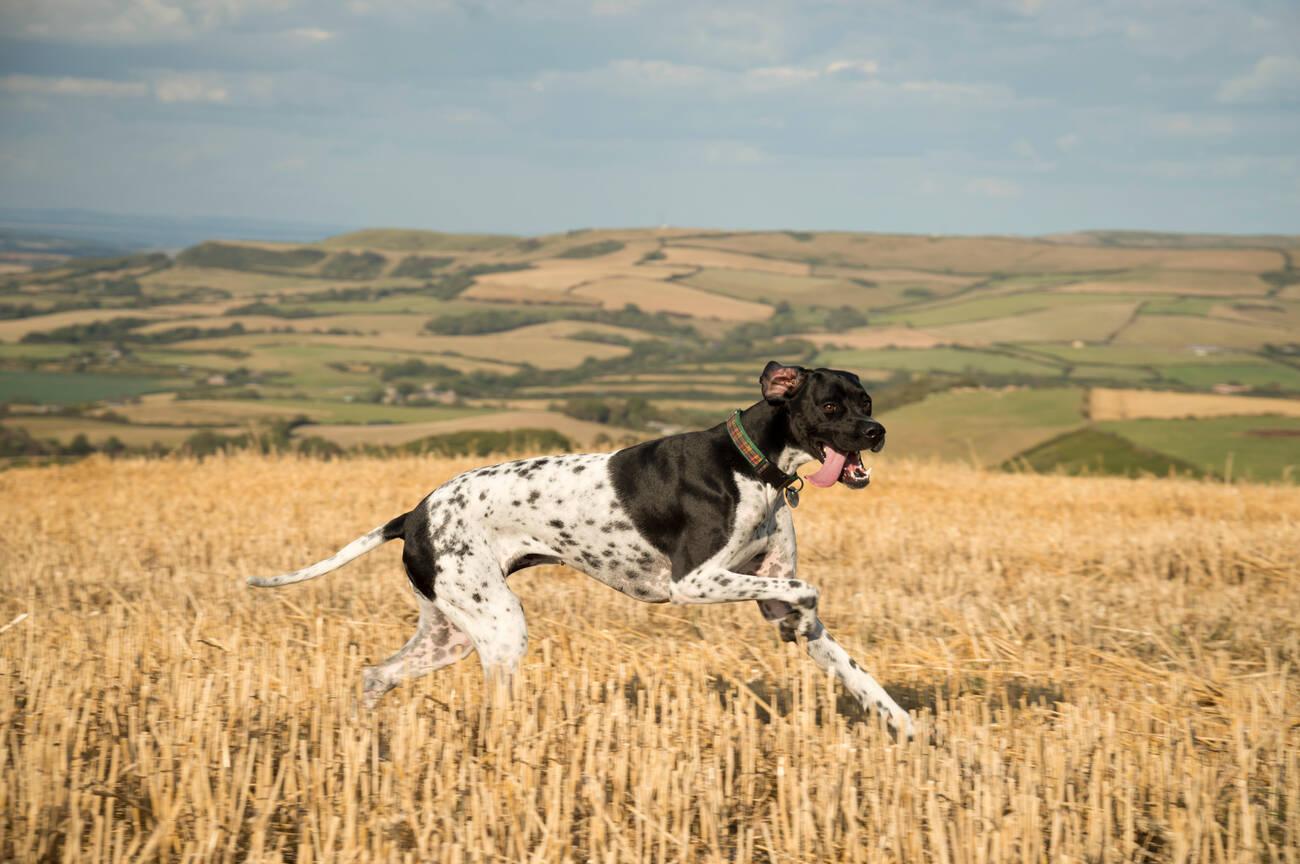
Frequently Asked Questions
Not usually, but they’re easily distracted. Feeding them in a quiet spot with tasty, protein-rich food helps keep their focus at mealtime.
They thrive on lean meats, omega-rich oils, and moderate complex carbs. Since they burn energy fast, a balanced, high-protein diet helps maintain stamina and muscle tone.
It’s in their DNA! Bred for the field, they have high endurance and natural prey drive. Daily exercise and games are essential to burn off steam.
Only if you’re super committed to long, daily walks or runs. They do best in homes with yards or open access to exercise spaces.
Yes, but only with patience and consistency. They're intelligent but independent, so positive reinforcement works better than harsh correction.
Absolutely. Incorporate scent work, puzzle toys, or training games. A bored Pointer is a mischievous Pointer!
They’re not excessive barkers but may vocalize out of boredom or alertness. Keeping them busy reduces unnecessary barking.
Yes, when properly socialized. They’re generally gentle and affectionate, but their energy means they need supervised play with small children.
Pointers are typically healthy but can face hip dysplasia, hypothyroidism, or skin sensitivities. Regular checkups and a joint-supportive diet help.
That’s the classic “point”! It’s an instinctive pose they strike when they detect prey scent: head forward, body still, one paw lifted; a signature move bred over centuries! 🐾👃

















